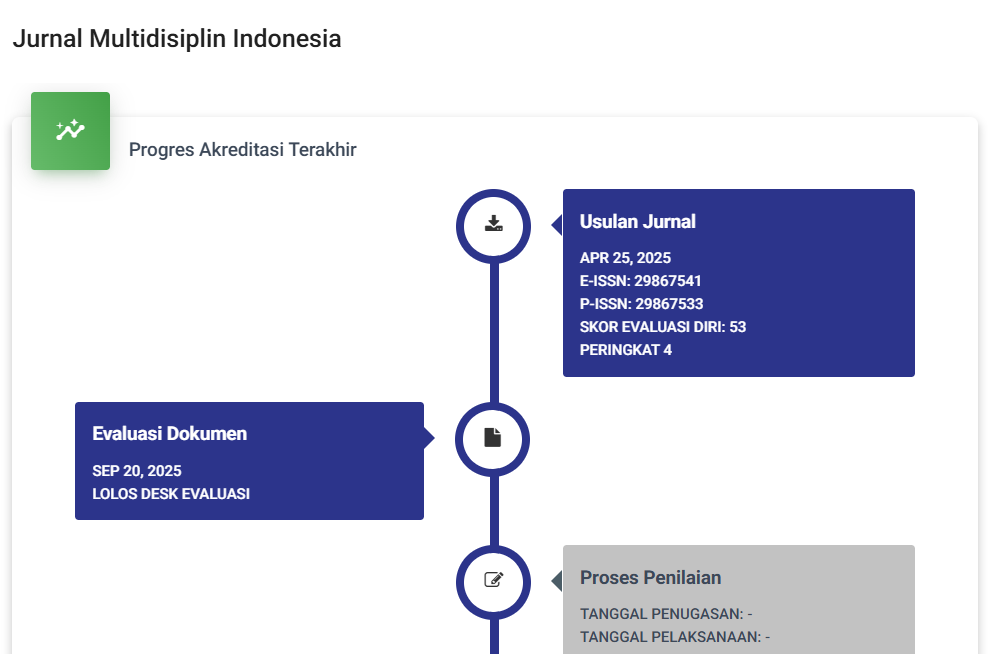Rahmatan Lil ‘Alamin Dalam Dunia Perbankan: Service Excellence Dalam Pandangan Islam
DOI:
https://doi.org/10.62007/joumi.v3i1.537Keywords:
Service excellence, Sharia Bank, IslamAbstract
Muslims, the majority of Indonesia's population, have not yet adopted Islamic banking as a preferred financial transaction service. One important consideration is service excellence. Service excellence is one effective way to attract customers. However, there has been no detailed discussion of the Islamic perspective on service excellence. This paper will focus on a detailed examination of the Islamic perspective on service excellence based on the texts of the Quran and Hadith. Using a qualitative approach, data collection through documentation and literature studies is conducted. This study found that the basic principles of excellent service are more appropriately aligned with the Islamic da'wah method. This Islamic da'wah method focuses on three main aspects: Al-Hikmah (Wisdom), Al-Mauidzah bil Hasanah (Prosperity), and Mujadalah bil Hasanah (Prosperity). This paper also found that every employee should have this service excellence based on the principles of the Prophet Muhammad: siddiq (Integrity), amanah (Trust), tabligh (Prosperity), and fathonah (Integrity). These four points are absolutely essential because they represent the ideal model for every employee.
References
Al-Qudsy, S. H. (2008). Budaya Kerja Cemerlang Menurut Perspektif Islam : Amalan Perkhidmatan Awam Malaysia. Jurnal Pengajian Melayu, 19, 187–207.
Anggito, A. (2018). Metodologi Penelitian Kualitiatif. Jejak Publisher.
Bangsawan, M. I. (2017). Eksistensi Ekonomi Islam (Studi Tentang Perkembangan Perbankan Syariah Di Indonesia). Law and Justice, 2(1), 24–34. https://doi.org/10.23917/laj.v2i1.4334
Berry, L. L. (1995). Relationship Marketing of Services Growing Interest, Emerging Perspectives. Journal of the Academy of Marketing Science, 23.
Budiharto, S., & Himam, F. (2006). Konstruk Teoritis dan Pengukuran Kepemimpinan Profetik. Jurnal Psikologi Fakultas Psikologi Universitas Gadjah Mada, 33(2), 133–146.
Cina, C. (1990). Five Steps to Service excellence. Journal of Services Marketing, 4(2), 39–47. https://doi.org/10.1108/eum0000000002510
Eisawi, D. (2012). Innovation as a Determinant for Service excellence inBanking. International Journal of E-Education, e-Business, e-Management and e-Learning, October 2014. https://doi.org/10.7763/ijeeee.2012.v2.141
Erawati, D., & Budiantono, B. (2021). Analisis Implementasi Service excellence Customer Service Pada Bank Muamalat, Capem Kota Batu. Widyagama National Conference on Economics and Business, 2(1), 1–8.
Fahri, M., & Intizar, A. Z.-. (2019). Moderasi Beragama di Indonesia. Jurnal.Radenfatah.Ac.Id, 25(2). https://doi.org/10.19109/intizar.v25i2.5640
Hasibuan, M. S. P. (2007). Dasar-Dasar Perbankan. PT Bumi Aksara.
Husyn, F. M. (1997). Uslub ad-Dakwah wa fi al-Quran. PT Lentera Baritama.
Islam, M. S. (2020). Organisation Culture & Service excellence: A study of Contemporary Business Operations. SSRN Electronic Journal. https://doi.org/10.2139/ssrn.3621060
Johnston, R. (2004). Towards a better understanding of service excellence. Managing Service Quality: An International Journal, 14, 129–133. https://doi.org/10.1108/09604520410528554
KNKS. (2020). Trend Konversi ke Bank Syariah; Tingkatkan Efisiensi dan Produktivitas Bisnis. Insight: Buletin Ekonomi Syariah, 9, 1–18.
Kurniawan, D. (2020). Service Excellent Berdasarkan Prespektif Islam di Bank Syariah. TAWAZUN : Journal of Sharia Economic Law, 3(1), 63. https://doi.org/10.21043/tawazun.v3i1.7835
Makruf, S. A. (2017). Urgensi Kepemimpinan Profetik dalam Mewujudkan Masyarakat Madani. Ta Dib : Jurnal Pendidikan Islam, 6(2), 242–254. https://doi.org/10.29313/tjpi.v6i2.3169
Makruf, S. A. (2020). Revitalisasi Pendidikan Agama Islam dalam Mewujudkan Profil Ulil Albab di Perguruan Tinggi. 12(2), 278–289. https://doi.org/10.30596/intiqad.v12i2.5321
Marimin, A., & Romdhoni, A. H. (2017). Perkembangan Bank Syariah Di Indonesia. Jurnal Ilmiah Ekonomi Islam, 1(02), 75–87. https://doi.org/10.29040/jiei.v1i02.30
Metawa, S. A., & Almossawi, M. (1998). Banking behavior of Islamic bank customers: Perspectives and implications. International Journal of Bank Marketing, 16(7), 299–313. https://doi.org/10.1108/02652329810246028
Munir., M. (2006). Metode Dakwah. Kencana.
Pramudyo, G. N., & Hendrawan, M. R. (2020). Metadata Interoperability for Institutional Repositories: A Case Study in Malang City Academic Libraries. In I. E., P. N.L., & Z. L. (Eds.), 22nd International Conference on Asia-Pacific Digital Libraries, ICADL 2020: Vol. 12504 LNCS (pp. 355–363). Springer Science and Business Media Deutschland GmbH. https://doi.org/10.1007/978-3-030-64452-9_33
Rijali, A. (2019). Analisis Data Kualitatif. Alhadharah: Jurnal Ilmu Dakwah, 17(33), 81–95. https://doi.org/10.18592/ALHADHARAH.V17I33.2374
Roqib, M. (2014). Pendidikan Karakter Dalam Perspektif Profetik. Jurnal Pendidikan Karakter, 0(3), 240–249.
Soedigno, E. R. (2020). KONVERSI KE BANK SYARIAH Tingkatkan Efisiensi dan Produktivitas Bisnis. Komite Nasional Keuangan Syariah. https://knks.go.id/storage/upload/1579934228-KNKS Insight Edisi 8 (Januari).pdf
Wardi, Y., Abror, A., & Trinanda, O. (2019). Service Excellent Rumah Makan Padang Dalam Perspektif Wisata Islami. International Journal of Community Service Learning, 3(3), 133–137. https://doi.org/10.23887/ijcsl.v3i3.15916
Wathani, M. Z., & Kurniasih, A. (2015). Konsep Service excellence Perbankan Syariah Berdasarkan Al-Qur’an. Nisbah: Jurnal Perbankan Syariah, 1(1), 1. https://doi.org/10.30997/jn.v1i1.245
Downloads
Published
How to Cite
Issue
Section
License
Copyright (c) 2025 Syahdara Anisa Makruf

This work is licensed under a Creative Commons Attribution-ShareAlike 4.0 International License.







